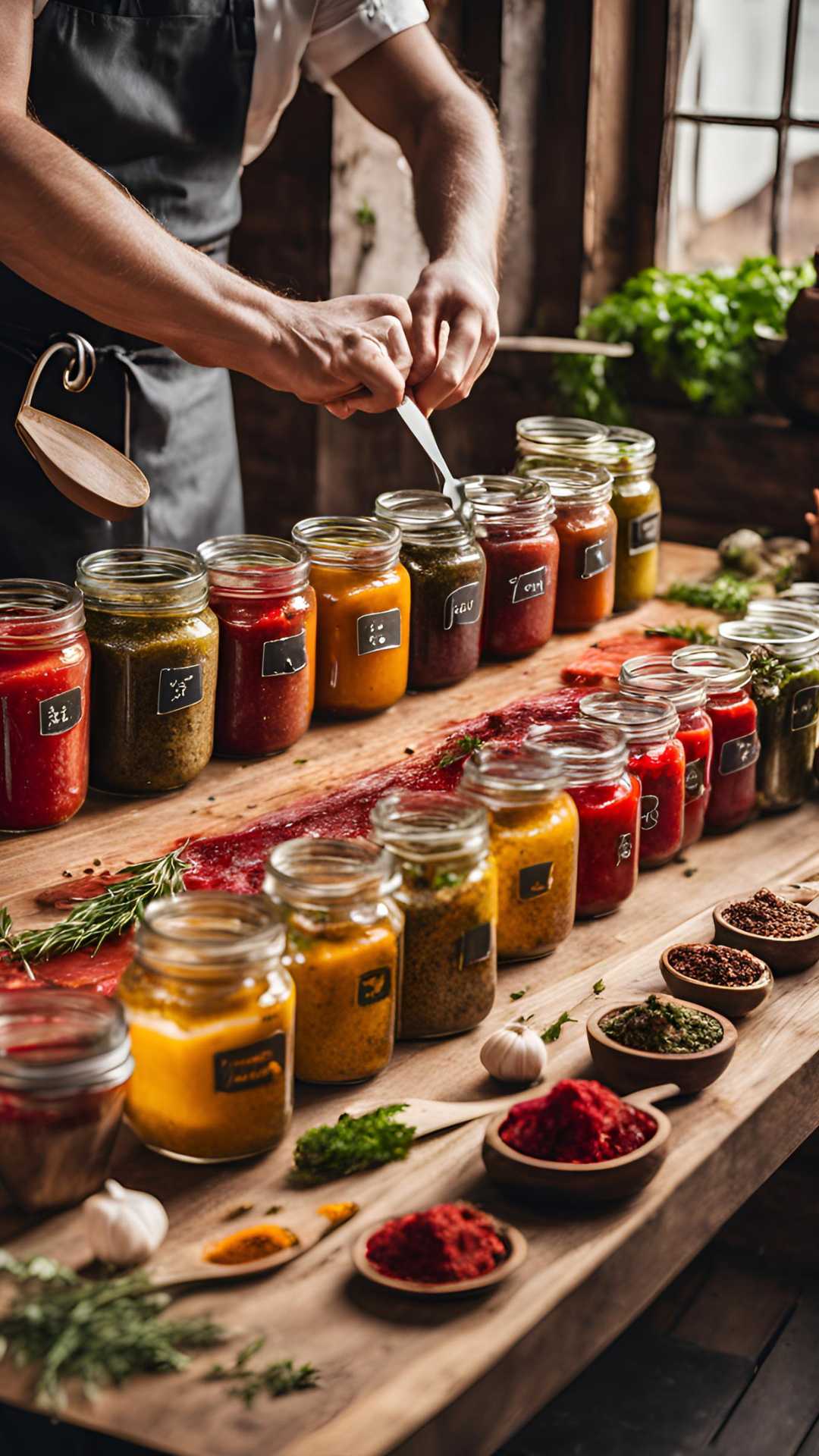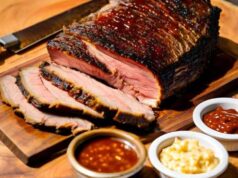- Key Takeaways:
- Understanding the Importance of Marinating
- Tip 1: Choose the Right Ingredients for Your Marinade
- Tip 2: Master the Timing - How Long to Marinate
- Tip 3: Use the Right Vessel for Marinating
- Tip 4: The Golden Rule of Marinating
- Tip 5: Experimenting with Unique Flavor Profiles
- Common Marinating Myths Debunked
- What Foods Marinate Best?
- Foods That Shouldn't Be Marinated
- Marinating and Cooking Methods
- Frequently Asked Questions
Marinating is a powerful technique that can elevate your BBQ from ordinary to extraordinary. By employing the right methods, you can infuse your meats and vegetables with delectable flavors that will have your guests asking for seconds.
Consider these top five marinating tips to ensure your grilling skills are exceptional.
- From selecting the ideal ingredients to dispelling common misconceptions, you are poised to enhance your BBQ experience and impress your guests with every bite.
Key Takeaways:
- Marinating is crucial for enhancing BBQ flavor.
- Choose the right ingredients and marinate for the appropriate amount of time.
- Use appropriate containers and keep in mind key principles for flavor absorption.
Understanding the Importance of Marinating
Marinating is a crucial step in preparing meats and vegetables for BBQ, as it significantly enhances flavor and tenderness while also ensuring food safety during the cooking process.
This process involves soaking the ingredients in a mixture of acidic components, such as vinegar or citrus juice, along with various herbs and spices. These elements work together to break down tough muscle fibers. As a result, marinating not only adds depth to your dish but also promotes moisture retention, leading to juicier outcomes on the grill.
It is essential to adhere to food safety practices; the marinating time should be carefully observed—typically ranging from 30 minutes to several hours, depending on the recipe. Additionally, the mixture should be stored in a refrigerator to prevent harmful bacterial growth. By mastering these techniques, you can significantly elevate your BBQ dishes.

Tip 1: Choose the Right Ingredients for Your Marinade
Selecting the appropriate ingredients for your marinade is crucial for achieving the ideal balance of flavors that will enhance your BBQ dishes, regardless of whether you are marinating chicken, beef, lamb, pork, or seafood.
Tip 2: Master the Timing – How Long to Marinate
Mastering the timing of marination is crucial for ensuring that your meats and vegetables absorb maximum flavor while remaining safe for consumption.
The appropriate marinating duration can significantly enhance the taste and tenderness of your dishes, but it is essential to adhere to the recommended times to avoid any texture issues. For example, chicken pieces typically require a marination period of 1 to 6 hours, while firmer cuts of beef may benefit from a longer soak of 6 to 24 hours, depending on their thickness. In contrast, vegetables generally only need about 30 minutes to an hour.
Additionally, factors such as the type of acid used—whether vinegar or citrus juice—play a critical role in how quickly the marinating process unfolds, influencing not just the flavor but also the integrity of the ingredients.
Tip 3: Use the Right Vessel for Marinating
Using the right vessel for marinating is crucial, as it not only influences the flavor absorption of your ingredients but also significantly impacts food safety and proper storage during the marinating process.
When selecting containers, glass and ceramic options are often considered the best choices due to their non-reactive nature, which ensures that they will not interfere with the flavors of your ingredients. Food-grade plastic can also be an appropriate option, as long as it is BPA-free and specifically designed for food storage. It is advisable to avoid metal containers, especially when working with acidic marinades, as they may leach unwanted metallic flavors into your food.
To minimize the risk of bacterial growth, it is essential to keep marinating food refrigerated and limit the time it spends at room temperature. This approach ensures safe and flavorful results without compromise.
Tip 4: The Golden Rule of Marinating
The golden rule of marinating is to ensure that your ingredients are fully submerged in the marinade. This allows for maximum flavor absorption and tenderness in your BBQ dishes. For the top 5 marinating tips, visit this article.
When meats and vegetables are adequately covered, the acids, oils, and spices in the marinade can penetrate more deeply, enhancing both taste and texture. To maintain an even distribution of these flavors, it is essential to turn or flip the ingredients periodically, facilitating a more uniform infusion.
Utilizing different marinating techniques, such as vacuum sealing or using ziplock bags, can create additional pressure that pushes the marinade into every crevice. This approach not only ensures a richer flavor profile but also enhances moisture retention, resulting in a juicier and more satisfying BBQ experience.
Tip 5: Experimenting with Unique Flavor Profiles
Experimenting with unique flavor profiles can significantly enhance your marinating techniques, resulting in culinary creations that will impress at your BBQ gatherings.
By moving beyond the ordinary and exploring unconventional ingredients, such as rich Asian-inspired sauces or aromatic Moroccan spices, you can unlock a diverse array of flavors that elevate your dishes. For example, consider marinating grilled chicken in a blend of soy sauce, ginger, and honey, or crafting a bold, smoky glaze for vegetables using harissa and garlic.
The beauty of combining various herbs, spices, and sauces lies in the innovative possibilities they present. Fresh cilantro paired with lime zest pairs beautifully with grilled fish, while a touch of cumin and coriander can elevate traditional lamb chops.
So, gather those spices from your pantry or local market and allow your creativity to guide you on your next culinary adventure.
Common Marinating Myths Debunked
There are numerous myths surrounding the marinating process that can lead to misconceptions about its effectiveness and safety, and it’s crucial to address these for successful BBQ preparation.
For example, the belief that marinating overnight is always the best option is not accurate for all types of meat. Certain proteins, such as chicken or fish, can become mushy when left in acidic marinades for extended periods.
It is important to recognize that marinating does not eliminate food safety concerns; rather, it enhances flavor and can aid in tenderizing the meat. Proper handling and storage of marinating foods are vital, as leaving them out at room temperature can encourage the growth of harmful bacteria.
Therefore, being knowledgeable about marinating duration and food safety practices will not only yield delicious results but also ensure a safe dining experience.
What Foods Marinate Best?
Certain foods marinate better than others, so selecting the right ingredients is essential for maximizing flavor in your BBQ preparations. Making informed choices in your ingredient selection can greatly enhance the overall taste and quality of your dishes.
Foods That Shouldn’t Be Marinated
While many foods benefit from marinating, there are specific exceptions that you should avoid due to their texture or flavor profiles, which can be negatively impacted.
Delicate fish, such as sole or flounder, naturally have a subtle flavor that strong marinades can easily overwhelm. Additionally, their tender flesh can become mushy if exposed to acidic ingredients for too long.
Similarly, pre-cooked proteins like rotisserie chicken or shrimp do not require marination, as they already contain moisture and seasoning. Instead of marinating these items, you can enhance their flavor by simply seasoning them with herbs and spices or lightly sautéing them with aromatic ingredients to maintain their integrity.
Employing gentle cooking methods, such as steaming or poaching, can also help preserve their delicate characteristics while enhancing their taste without overpowering it.
Marinating and Cooking Methods
Understanding the relationship between marinating and cooking methods is essential for achieving optimal results in your BBQ dishes, whether you are grilling or smoking.
By mastering this relationship, you can elevate flavors and textures, ensuring that each dish reflects the deeply infused taste that marinating provides. For instance, when grilling, the high heat enhances the caramelization of sugars in the marinade, resulting in a beautifully charred exterior while maintaining a juicy interior. In contrast, roasting allows for longer exposure to lower heat, making it ideal for thicker cuts that benefit from gradual cooking and flavor absorption.
Smoking, with its unique low-and-slow technique, deepens the smoky flavor, particularly when paired with herby or spicy marinades. When adjusting cooking times and temperatures, it is important to consider the marinade’s acidity and sugar content—more acidic marinades may require slightly shorter cooking times to avoid over-tenderizing the meat, while sweeter sauces can sometimes endure a bit longer before charring.
With these thoughtful adjustments, your barbecued items can truly shine with a depth that complements their marinated essence.
Frequently Asked Questions
What are the top 5 marinating tips for the perfect BBQ flavor?
The top 5 marinating tips for perfect BBQ flavor are: choosing the right marinade, using enough marinade, marinating for the recommended time, properly seasoning the meat before marinating, and letting the meat rest after marinating.
How do I choose the right marinade?
When choosing a marinade, consider the flavors you want to infuse into your meat. Choose a marinade with a good balance of acid, oil, and seasonings for a well-rounded flavor.
How much marinade should I use?
As a general rule, use 1/4 to 1/2 cup of marinade for every pound of meat. Make sure to evenly coat the meat with the marinade for maximum flavor.
How long should I marinate my meat?
The recommended marinating time varies depending on the type of meat. Generally, 30 minutes to 2 hours is enough for smaller cuts of meat, while larger cuts may need to marinate for 4-6 hours or overnight.
Do I need to season the meat before marinating?
Yes, it is important to season the meat with salt and pepper before marinating. This allows the flavors of the marinade to penetrate the meat more effectively.
Should I let the meat rest after marinating?
Yes, it is recommended to let the meat rest for 15-30 minutes after marinating. This allows the meat to come to room temperature and helps it cook more evenly on the grill.



















































